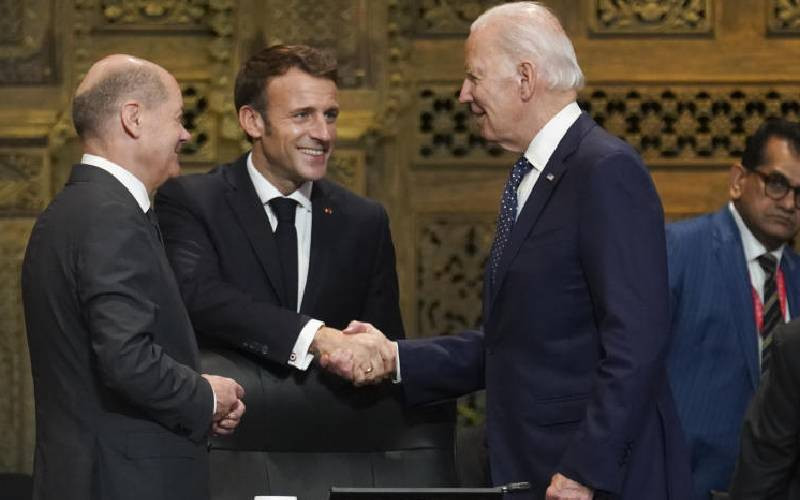×
The Standard e-Paper
Home To Bold Columnists

U.S. President Joe Biden, French President Emmanuel Macron and German Chancellor Olaf Scholz greet each other during the first working session of the G20 leaders' summit in Nusa Dua, Indonesia on November 15, 2022. [AP Photo]
November has been quite busy with the agenda of global economic and political cooperation and sports. Before the World Cup football tournament kicked off in Qatar on Sunday, one of the world's most complex and delicate negotiations happened at Sharm el-Sheik, in Egypt.